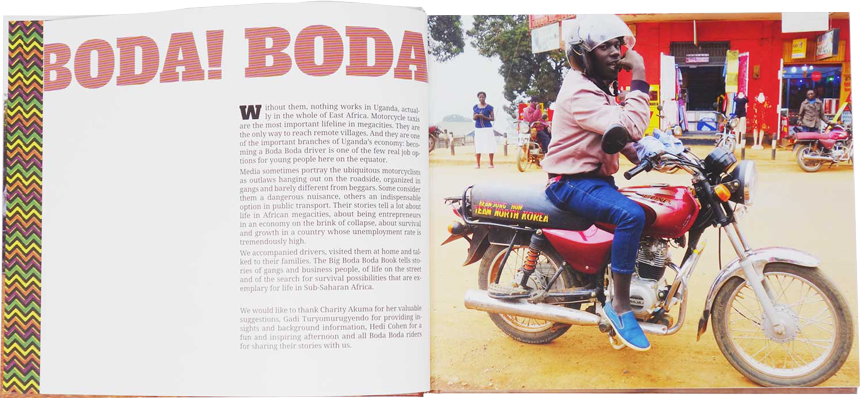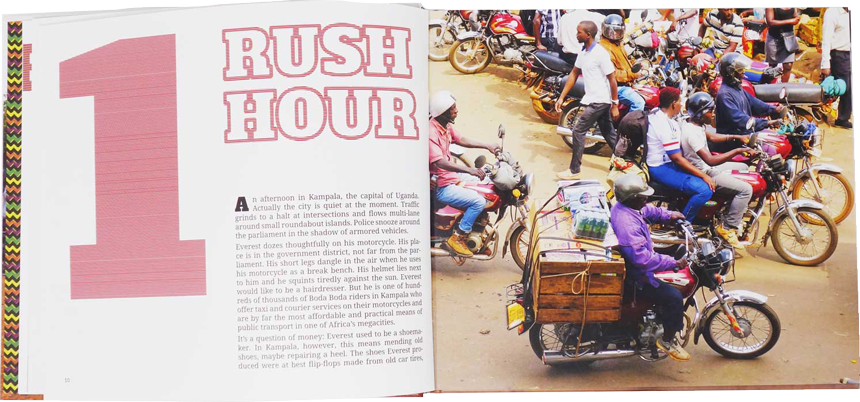Without them, nothing works in Uganda, actually in the whole of East Africa: motorcycle taxis are the most important lifeline in megacities, they are the only way to reach remote villages – and they are one of the important branches of Uganda‘s economy: becoming a Boda Boda driver is one of the few real job options for young people here on the equator.
At first glance, the ubiquitous motorcyclists seem to be outlaws hanging out on the roadside, organized in gangs and barely different from beggars. Some consider them a dangerous nuisance, others an indispensable option in public transport. Their stories tell a lot about life in African megacities, about being entrepreneurs in an economy on the brink of collapse, about survival in a country whose unemployment rate is up to 80 percent.
We accompanied drivers, visited them at home and talked to their families. The Big Boda Boda Book tells stories of gangs and business people, of life on the street and of the search for survival possibilities that are exemplary for life in sub-Saharan Africa.


We would like to thank everyone who shared their stories with us, who gave us their time and who helped us along the way.
Boda Bodas are Uganda‘s most important transport infrastructure. And the industry has also become an indispensable economic factor. In a country with virtually no jobs and no great economic prospects for young people, Boda Boda‘s future is being created. Driving licences are only a theoretical necessity. In practice, thousands of young people – mainly men – without training and without capital are pushing into the industry. The motorcycles are often provided by wealthier Ugandans against daily allowance, and the adventure ist about to begin.
According to studies by Makerere University in Kampala, up to two million people in Uganda now live from the Boda Boda industry. These are drivers, dealers, mechanics, car wash operators or decorations dealers. Two million people – that‘s five percent of the population. For comparison: In Western European countries, five percent of the population lives from agriculture ...



